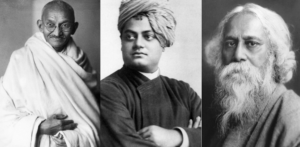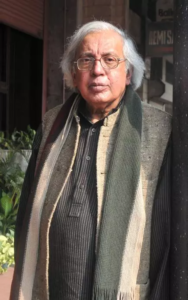(This article was published in Mainstream on 9 August, 1997. We are reproducing it here as it is still as relevant today.)
As the country is getting ready to celebrate the fiftieth anniversary of attainment of freedom, many memories come back to those who were fortunate to be witness to those momentous events. The subcontinent—both India and Pakistan winning independence—opened a new chapter in history, the chapter on decolonisation. It is not often realised that it is the people of this subcontinent who started a historic movement which saw country after country becoming free from colonial bondage and asserting themselves as independent nations.
For those of us who have seen with our own eyes the ushering in of the independence to this country, there will always remain a tinge of tragedy attached to it—namely, the searing partition of the country. The ecstasy of freedom was accompanied in those memorable days with the agony of partition. As we remember one, the other also comes back to mind. The joy of freedom was shattered by the bitter desolation evoked by the partition.
In the excitement of the golden jubilee celebrations, is but natural that the aspect of joy, of triumph is remembered and highlighted, while that of sorrow, of defeat, is often forgotten or glossed over. But at 50, a nation certainly reaches adulthood and can look back without anger or remorse on what happened and into the cause of this tragic development, namely, the vivisection of a country as a condition precedent to its independence. It is time we assessed who was responsible and for how much this division of the country, this slicing up of the organic whole of a vibrant body politic.
In this context, it is surprising to find that some of the principal actors on the Indian side could not anticipate the blood and tear that would follow the partition. In their intellectual horizon, it was going to be a smooth, painless partition which would usher in freedom but without tears. It is on record that both Sardar Vallabhai Patel and Pandit Jawaharlal Nehru expected that it would just be a peaceful partition and everything would be all right once it was brought about. Only Gandhiji had a different view. He had the terrible premonition that the partition would lead to endless distress as it turned out to be. This difference among the leaders of the triumphant national movement was known at that time to even the youngest of reporters. It was known that Gandhiji was not happy, and he was not called to the meeting of the Congress Working Committee which accepted the Mountbatten Plan for the partitioning of the country.
D.G. Tendulkar, who did a great national service writing volumes after volumes on Gandhiji’s very active life, had recorded an extraordinary piece out of Gandhiji’s papers. Two days before the Mountbatten Award was announced on June 3, 1947, Gandhiji who was in Delhi at the time, woke up half-an-hour before his early morning prayer on June 1, 1947 and wrote down in his diary the following which is part of our history:
“The purity of my striving will be put to the test only now. Today, I find myself all alone. Even the Sardar and Jawaharlal think that my reading of the political situation is wrong and peace is sure to return if partition is agreed upon. They did not like my telling the Viceroy that even if there was to be partition, it should not be through British intervention or under the British rule. They wonder, if I have not deteriorated with age.
“Nevertheless, I must speak as I feel, if I am to prove a true, loyal friend to the Congress and to the British people, as I claim to be, regardless of whether my advice is appreciate or not. I see clearly that we are setting about this business the wrong way. We may not feel the full effect immediately, but I can see clearly that the future of independence gained at this price is going to dark. I pray, that God may not keep me alive to witness it. In order that He may give me the strength and wisdom to remain firm in the midst of universal opposition and to utter the full truth, I need all the strength that purity can give.
“But in spite of my being all alone in my thoughts, I am experiencing an ineffable inner joy and freshness of mind. I feel as if God Himself is lighting my path before me. And that is perhaps the reason why I am able to fight on single-handed. The people ask me to retire to Kashi or to the Himalayas. I laugh and tell them that the Himalayas of my penance are where there is misery to be alleviated, oppression to be relieved. There can be no rest for me, so long as there is a single person in India lacking the necessaries of life. I cannot bear to see Badshah Khan’s grief. His inner agony wrings my heart. But, if I give way to tears, it would be cowardly and, the stalwart Pathan as he is, he would break down. So I go about my business unmoved. That is no small thing.
“But maybe all of them are right and I alone am floundering in darkness… I shall, perhaps, not be alive to witness it, but should the evil I apprehend overtake India and her independence can be imperilled, let posterity know what agony this old soul went through thinking of it. Let it not be said that Gandhi was party to India’s vivisection. But everybody is today impatient for independence. Therefore, there is no other help.”
Here is the clear proof that Gandhiji was not a party to the partition of India, while statesmen like Nehru and Patel were beguiled into accepting it, nurturing the illusion that once the partition was brought about, everything would be lovely in the garden. Only Gandhi had the premonition that the partition would unleash forces which would be terrible for the two countries. It is known that in the negotiations that preceded the partition, Gandhi went to the utmost length to avert it. So much so that he at one stage proposed to hand over the Prime Ministership of India to Jinnah, an offer which was not approved by either Nehru or Patel. This was the report that the young reporter like the present writer got at the time.
Actually Gandhiji’s herculean efforts at averting the partition of India started long ago. Even from prison, he welcomed Rajaji’s formula in 1944 and immediately after his release, he had long and confidential parleys with Jinnah. The collapse of that round of talks naturally came as a severe blow for many of us. But the atmosphere at the time was not one of touch-and-go. Hope was nurtured that something would sooner be found to escape the partition. By the time Mountbatten started his final round of talks, it became inevitable that Gandhiji would not be able to avert the partition. It is thus clear that only one among the stalwarts of our freedom movement, Gandhiji, had the foresight about the irreparable damage that the partition would bring to the subcontinent.
All the other leaders regarded that the scar of the partition would be short-lived, though the British, as the imperial power still wielding their baton, wanted to make use of the partition for their Central Asian policy. It may be noted that three years before the actual partition, Prof Coupland had drawn up a tentative map of the partitioning of India. The idea behind that exercise was obviously to decontaminate the north-west from the rest of the subcontinent, and keep it as a reserve to use it as the jumping-off ground into Central Asia. Sir Olaf Caroe, who was one of the star players in the Great Game, found that after the War, Britain was too weak to play it. So, he took all his plans and papers for the Great Game to the US State Department and urged the USA, the new avatar, to take up the role which Britain had played for nearly a century. This gives us the clue why the US Administration assigned for Pakistan a strategic role in the period of the Cold War.
Why did the Congress leadership accept the partition? One gets the impression at the time that practically the entire lot of the Congress leaders had become tired, unwilling to undertake another round of struggle. Secondly they seemed to have been taken in by Mountbatten’s persuasions and blandishments. Gandhi saw through both. But perhaps he had the misgiving that another round of mass struggle—bigger even than the 1942 movement—might not be possible in view of the fact that the Congress leadership itself did not seem to be prepared for it.
This obvious reluctance of Gandhiji to undertake another round of struggle is one of the mysteries of Indian history in the modern age. Gandhi was never known to shirk even when he was single-handed, as it happened in the twenties. This time, he had on his side JP and the entire Left (including the thoroughly chastened Communists). Why then did he keep quiet, anticipating the harrowing consequence of the partition?
Sometimes History does not provide the right answer—even after 50 long years.
[Nikhil Chakravartty (1913–88) was a famed journalist and the founder–editor of the respected current affairs weekly Mainstream.]




